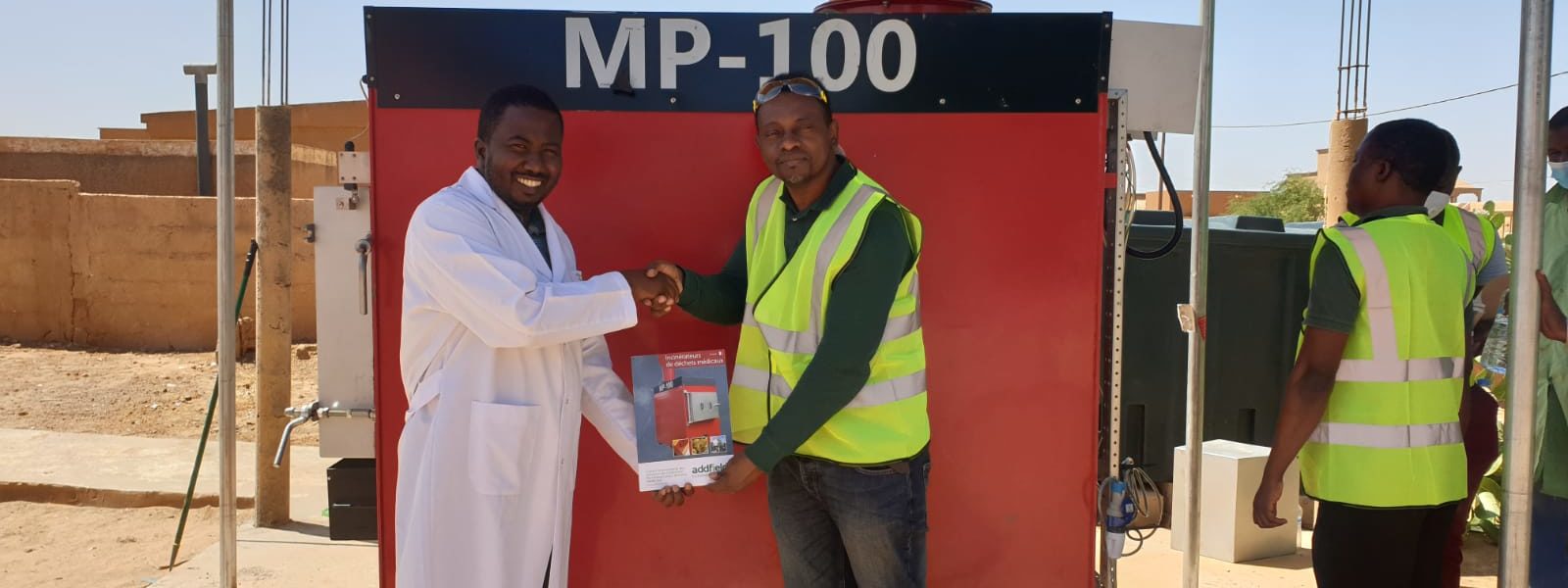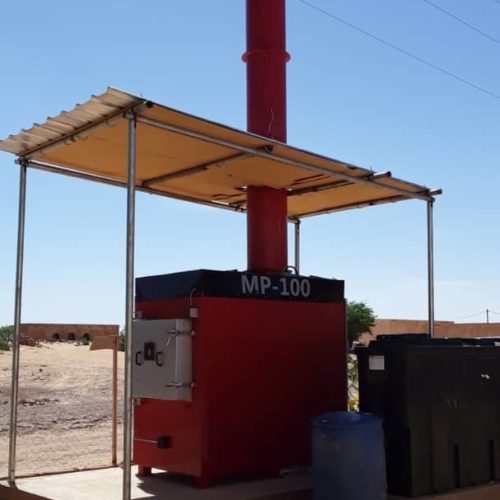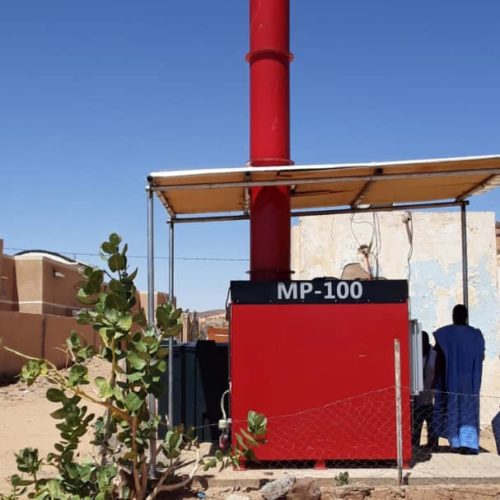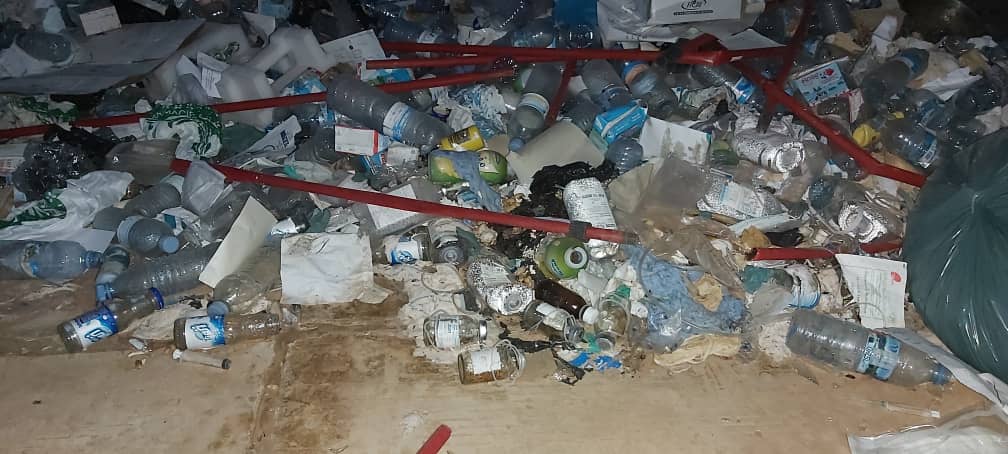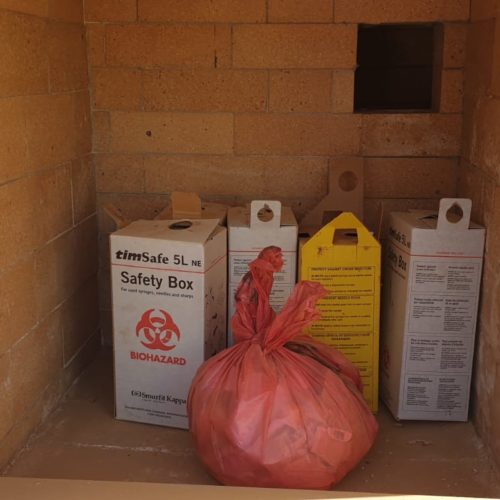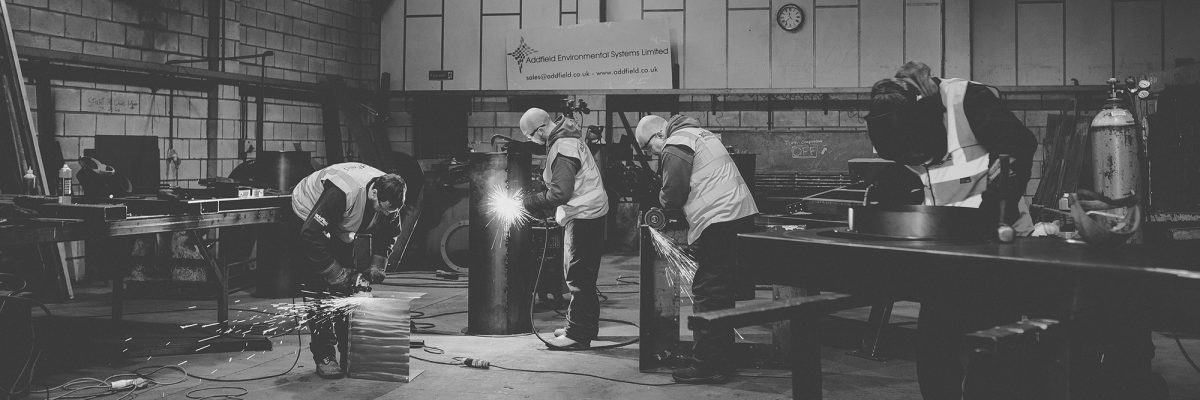15 MP100 medical incinerators installed for UNICEF.
At Addfield, we always consider beyond the initial installation of our machines. Having a designed life expectancy of more than 20 years, we aim to supply incinerators that will provide multiple solutions regardless of what they are subject to. This is especially true when investing in a medical waste disposal system. One factor that is vital when considering a machine is the ease of maintenance and repair. Ordinarily, that would not be an issue for many years with our machines; however, in some instances, the projects can be a little extraordinary.
In early 2019 we were awarded a contract from UNICEF to provide 15 MP100 medical waste incinerators. Received following an in-depth tender process to ensure that our machines matched their requirements exactly. Completed and shipped out by the summer, we then prepared our team to travel, install and commission these machines. And then a roadblock. It is not uncommon for international aid agencies to order machines to support projects that are still in development. Often our machines may arrive a couple of weeks or even months before the infrastructure is in place to enable the commissioning of these machines. This project was a little less ready than usual, and the machines were placed into storage for over a year.
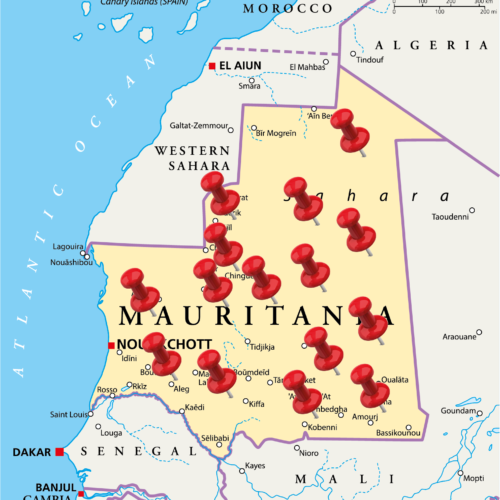
A lot can happen in 12 months.
The medical world has never changed as quickly as between 2019 and 2020, the Coronavirus turned into a global pandemic unseen for over 100 years. When initially ordered in 2019, Measles was the main factor. Due to be installed at hospitals to dispose of mixed medical waste created as a by-product of treating this and many other viral diseases such as Rift Valley Fever, Crimean-Congo haemorrhagic fever and Dengue fever. By the time the infrastructure was finally in place, their operation had become essential.
Prior to these installations, the waste was disposed of in a manner we have seen many times across developing countries, and that is unfortunately highly dangerous, openly discarded on open ground, and grazed upon by local livestock, further increasing the risks of spreading these viral diseases a particularly worrisome situation when considering how prolific the Covid19 pandemic was spreading.
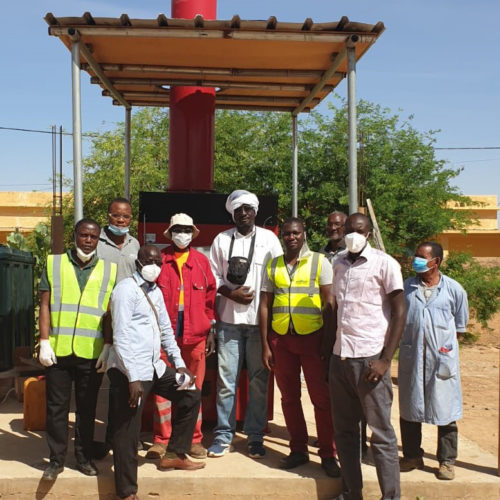
Increased importance of medical waste incinerators
In most instances, when our machines are delivered, it is only a matter of days before the installation and commissioning takes place. However, it is not unheard of for our machines to be in place waiting for the infrastructure to be implemented, which can sometimes mean weeks or months of waiting and in this extreme instance, they can be left for over a year.
Once delivered, many of these machines were placed into storage, awaiting site readiness. While in storage, several of these machines fell victim to wandering hands, and several components went missing before they were delivered to site. In addition to parts being taken, many machines were not handled well in country to such an extent the customer was worried about being able to have any of them up and running.
Strong enough for the Sahara Desert
Fortunately, we know our machines well and build them strong for just such a reason. So when the time came for our engineers to travel to arrange for commissioning, it was clear upfront that this would not be a simple install and set-up activity. Abraham Bah, our representative for the African continent, went prepared with an oversized suitcase not filled with clothes but spare parts and tools to ensure that all of these MP100s would be operational. Joining Abraham were our international team of engineers from Togo and Nigeria, bringing with them their innovative skillset at installing in challenging remote locations. For several weeks the team travelled across Mauritania, including deep within the Sahara Desert regions of the country. Alongside the onsite installation, full training was delivered to teams of engineers and operators from the hospitals, clinics and even the Ministry of Health. Ensuring the ability to improve the management of waste currently and in the future as situations change.
This project is a wonderful example of being prepared for any situation and having a solution that is genuinely built to last. Our team worked side by side with hard-working engineers across Mauritania, installing and commissioning all these machines. We provided resources to secure future maintenance, and servicing was easy to continue and put systems in place to ensure that essential waste management would continue for many years to come.

